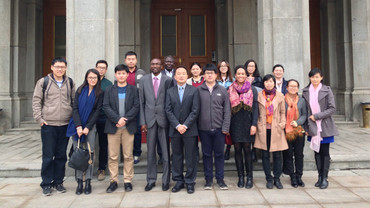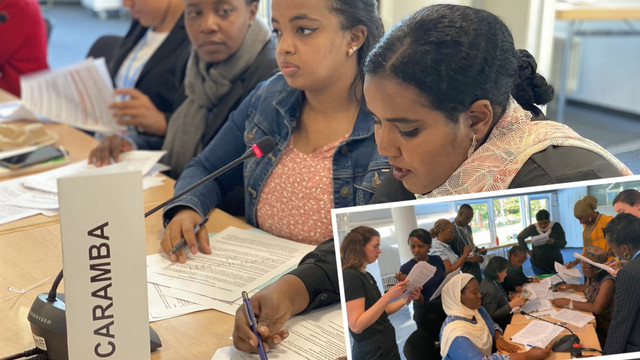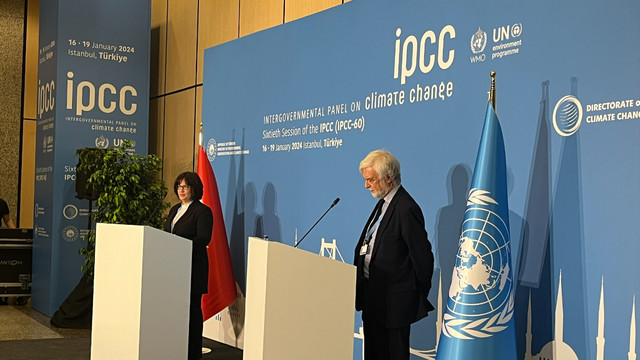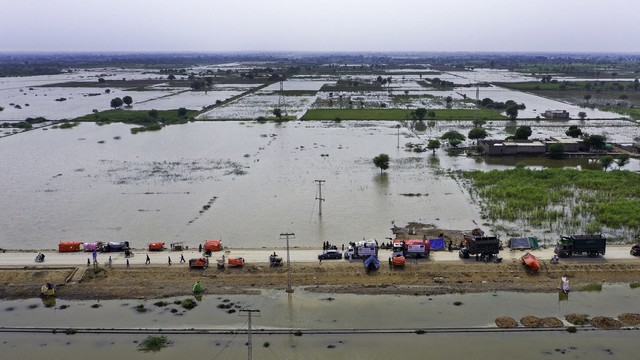A diplomatic approach to raising climate ambition
Veteran climate negotiator and Gambian Minister Pa Ousman Jarju reflects on the Paris Agreement and the continued need for diplomacy and ambitious climate action.


Evidence of coastal erosion in The Gambia. Erosion is threatening not only Gambia's tourist industry but also wetlands, roads and infrastructure (Photo: Diego, Creative Commons via Flickr)
The Paris Agreement is unprecedented. For the first time in history, all nations have agreed to take action to address climate change in a legally binding agreement. As a veteran of the international climate negotiations – actively following this debate for well over a decade – I remain tremendously pleased with the results of the 21st Conference of the Parties (COP21).
I attribute this success to the plethora of diplomatic engagements on climate change carried out by governments and other actors in advance of COP21. I remain convinced that this scale of climate diplomacy made agreement in Paris possible, and that it is the only force powerful enough to enable its commitments to be met.
As a Special Climate Envoy of one of the world's poorest nations, I have spent the last few years engaging with diplomatic partners around the world. Through dialogue and negotiation, I contended that the success of any agreement reached in Paris would be judged on its response to the needs of the most vulnerable.
Together with the Least Developed Countries (LDC) Group, I spent the first two weeks of December in a final push. Our efforts saw us through to a Paris Agreement whose articles enshrine three issues of great importance to the world's Least Developed Countries.
Three key achievements
First, nations will pursue efforts to limit temperature increase to 1.5 degrees Celsius. Scientists indicate that an average global temperature rise that exceeds this limit will drastically impact the lives and livelihoods of the nearly 1 billion people living in the LDCs, as well as those living in Small Island Developing States (SIDS).
Agreeing to a 1.5 degree threshold sets the parameters for a world that gives the LDCs the best possible chance at a sustainable future. It sets the parameters for a world we can all work towards.
Second, the Paris Agreement also commits the world to averting, minimising and addressing the permanent losses and damage associated with the adverse effects of climate change. From my own national perspective, and that of other LDCs and SIDS, the issue of loss and damage stands at the heart of what needs to be addressed by the international community.
The Gambia faces challenges of sea level rise, increasing water salinity and the devastating effects of changing weather patterns on agricultural practices that go beyond the reach of adaptation. In Paris, the world agreed that loss and damage will be one of the key pillars of international cooperation, and this again was what was needed by the poorest and most vulnerable.
Third, nations have recognised the specific needs and special situations of the LDCs. The world's poorest nations face a unique set of challenges in the face of climate change. We are those who have contributed the least towards causing the problem, but will suffer its worst consequences as we have the least capacity to confront them.
The preamble of the Paris Agreement acknowledges the specific funding and technology transfer needs of the LDCs, and its Articles, specifically those relating to capacity building and transparency, further elaborate them.
Increasing national action
While I continue to celebrate the success of COP21, much remains to be done. The Paris Agreement and the national commitments made to fulfil it will not come into effect until 2020. To date, 189 countries have made national commitments. While I am encouraged by the quantity of pledges, it is now time to address their quality.
Though these commitments cover the vast majority of emissions, the reductions they indicate are not enough. Initial analysis of their aggregate effect places the world on track for a 2.7 degree Celsius rise in global average temperature. This means there still remains a significant gap between the mitigation pledges put forward and the emission reductions required.
Even more worryingly, national commitments are labelled as merely "intended". Their tenuous nature was highlighted this week by the United States Supreme Court's decision to temporarily suspend implementation of President Obama's efforts to reduce emissions pending the settlement of various legal challenges.
In the run-up to 2020, nations will need to demonstrate their resolve to meeting the agreed goal by firming up their national commitments with sound domestic policies and raising their ambition.
Turning engagement into action
This can be done. If the Paris Agreement marks nothing else, it demonstrates the tremendous amount of political will and international cooperation dedicated to addressing climate change, especially among those most vulnerable to its threats.
So far, 46 of the 48 the world's poorest nations have submitted national commitments. From my own experience, I know that ambitious national commitments can be put forward, even in the face of difficult national circumstances.
The Gambia contributes about 0.01 per cent to global greenhouse gas emissions. In spite of this, the country has committed to drastically reduce its emissions by 44.4 per cent in 2025 and 45.4 per cent in 2030 with domestic and international support. If The Gambia can take such bold steps, surely others have the moral obligation to do more.
It is this kind of motivation that diplomats must take forward. COP21 was in fact the culmination of years of diplomatic engagement on climate change, taken up by France, Peru as the president of COP20, and various others actors. From my own experience, the Cartagena Dialogue and civil society efforts to facilitate climate diplomacy such as the Toward 2015: International Climate Dialogue come to mind.
Together with France's remarkable dedication to climate diplomacy, these exchanges successfully unified the world's dissenting voices into agreement in Paris.
I have no doubt that only a similar effort will achieve the increased national ambition that is necessary to achieve our agreed targets. Climate diplomacy must continue to build trust and inspire increased ambition over the next five years.
It is only together that we will rise to the challenge of fulfilling our commitments.
Pa Ousman Jarju is Minister of Environment, Climate Change, Water Resources, Parks and Wildlife, and Fisheries, and The Gambia's lead negotiator at international climate talks. He co-facilitated the working group on Pre-2020 action at COP21, set up to help deliver the Paris Agreement. He is also a member of IIED's LDC Independent Expert Group. This blog was originally posted by the Climate and Development Knowledge Network.




